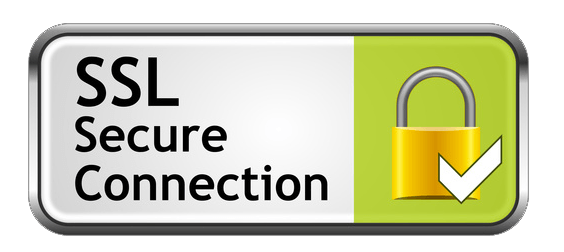
How to Choose the Perfect Hosting Plan for Your Website
Choosing the right hosting plan is one of the most important decisions for your website. Whether you are building a personal blog, an e-commerce store, or a business website, the hosting plan you select will directly impact your site’s speed, security, reliability, and scalability. With so many options available, it can feel overwhelming but this guide will help you make the best choice for your website.
1. Understand the Different Types of Hosting
Before selecting a plan, it’s important to understand the main types of hosting available:
Shared Hosting
-
Overview: Multiple websites share the same server resources.
-
Pros: Affordable, beginner-friendly, easy to set up.
-
Cons: Limited resources; performance may be affected by other websites on the same server.
-
Best for: Small personal blogs, portfolios, or small business websites with low to moderate traffic.
VPS (Virtual Private Server) Hosting
-
Overview: A single server is split into multiple virtual servers, each with dedicated resources.
-
Pros: More control, better performance than shared hosting, scalable.
-
Cons: More expensive; requires some technical knowledge.
-
Best for: Growing websites, medium-sized businesses, or online stores expecting increased traffic.
Dedicated Hosting
-
Overview: You get an entire server dedicated solely to your website.
-
Pros: Maximum performance, full control, high security.
-
Cons: Expensive; technical expertise often required.
-
Best for: High-traffic websites, large e-commerce stores, or websites with complex applications.
Cloud Hosting
-
Overview: Your website is hosted on a network of servers rather than a single server.
-
Pros: Highly scalable, flexible, reliable uptime.
-
Cons: Can be more complex and slightly more expensive than shared hosting.
-
Best for: Websites expecting fluctuating traffic, growing startups, or apps requiring high availability.
2. Consider Your Website’s Needs
Your hosting choice should reflect the unique needs of your website:
-
Traffic: How many visitors do you expect daily? Small blogs can use shared hosting, while high-traffic websites may need VPS or dedicated hosting.
-
Storage & Bandwidth: Consider the size of your website files and media. Larger sites need more storage and higher bandwidth.
-
Technical Requirements: Do you need special software or programming environments? Certain hosting plans offer PHP versions, databases, or Node.js support.
-
Security Needs: If your website handles sensitive data, such as payments, ensure the hosting plan offers SSL certificates, firewalls, and DDoS protection.
3. Evaluate Performance and Speed
Website speed is critical for user experience and SEO. When choosing a plan:
-
Server Resources: More CPU and RAM mean better performance.
-
SSD Storage: SSDs are faster than traditional HDDs, improving page load times.
-
Content Delivery Network (CDN): Some hosting providers offer CDNs to deliver your site content faster globally.
At AbayHost, all our hosting plans include SSD storage and optimized servers to ensure your website loads quickly and reliably.
4. Look for Reliability and Uptime
Downtime can cost you visitors, revenue, and trust. Aim for a hosting plan with:
-
High Uptime Guarantee: Look for 99.9% uptime or higher.
-
Redundant Infrastructure: Multiple servers and backups prevent downtime if one server fails.
AbayHost guarantees 99.9% uptime, ensuring your website is always available to your visitors.
5. Consider Support Options
Even the most reliable hosting can face issues. Consider:
-
24/7 Support: Can you get help anytime via chat, email, or ticket?
-
Knowledge Base & Tutorials: Helpful guides make troubleshooting easier.
-
Technical Expertise: Does the support team understand your platform (WordPress, Joomla, e-commerce)?
AbayHost provides round-the-clock professional support to help you manage your website effortlessly.
6. Check for Scalability
Your website may grow over time, so choose a hosting plan that can scale:
-
Upgrade Options: Can you easily move from shared to VPS or dedicated hosting?
-
Resource Flexibility: Look for plans that allow you to increase storage, bandwidth, or CPU/RAM as your traffic grows.
7. Budget Considerations
Price is always a factor, but it shouldn’t be the only one:
-
Shared Hosting: Cheapest, usually $3–$10/month.
-
VPS Hosting: Mid-range, $20–$80/month.
-
Dedicated Hosting: Premium, $80–$300+/month.
-
Cloud Hosting: Flexible, pay for what you use.
Consider long-term value — a slightly higher-cost plan with better performance and support is often worth it.
8. Extra Features to Look For
-
Free Domain Name: Some plans include your first domain.
-
SSL Certificates: Essential for secure websites and SEO.
-
One-Click Installer: Simplifies WordPress, Joomla, or other CMS setup.
-
Backups: Automatic daily or weekly backups protect your data.
-
Email Accounts: Professional email addresses using your domain.
Conclusion
Choosing the perfect hosting plan requires balancing your website’s needs, expected traffic, technical requirements, and budget. At AbayHost, we provide a range of hosting plans designed to fit every type of website from personal blogs to large business platforms.
Take the time to evaluate your needs, and don’t hesitate to contact our support team if you need guidance. With the right hosting plan, your website will perform faster, stay secure, and be ready to grow with your online goals.





